This Course has completed.
INTRODUCTION TO INDIAN KNOWLEDGE SYSTEMS
A 20 hours Offline Certificate course from
Centre for Heritage of Intelligence Traditions of India (CHITI),
An Indic study and research centre of Narmada College Campus, Bharuch, Gujarat
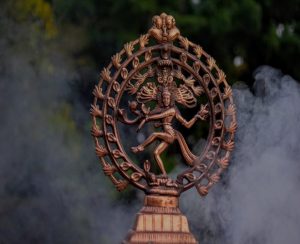
Duration: 10 weeks with 20 contact hours, from 6th January 2024 to 16th March, 2024
Course Registration Link:

https://forms.gle/mnFexcBvCy9ATz2P7

In 2000 years of economic history, India contributed to almost 40 % of the world GDP for 1000 years and remained a major economic power till 1850. It is only in the last 150 years that it lost this position and became a marginal player in world trade. This superlative economic performance was achieved without the abuse and exploitation of nature which we are a witness to since the industrial revolution of Europe till present. This was a model of life in which economic growth and ecology were not positioned against each other. How this was conceived and achieved in reality? What was the vision of the rishis, our forefathers, who conceived, designed and developed a way of life which is based on reverence for all existence? What was their understanding about life and its meaning? Ananda Coomaraswamy, in his article on What has India Contributed to Human Welfare, which is included in his book, The Dance of Shiva, observes, “The heart and essence of the Indian experience is to be found in a constant intuition of the unity of all life, and the instinctive and ineradicable conviction that the recognition of this unity is the highest good and the uttermost freedom. All that India can offer to the world proceeds from her philosophy. This philosophy is not, indeed, unknown to others – it is equally the gospel of Jesus and of Blake, Lao Tze, and Rumi – but nowhere else has it been made the essential basis of sociology and education.”
The genius of the Indic way of life was not the discovery of the infinite and the eternal in the finite world, but this discovery and understanding was used to design a culture and civilization which aimed to realize this infinite and eternal aspect for every human life. Again to quote Coomaraswamy, “Where the Indian mind differs most from the average mind of modern Europe is in its view of the value of philosophy. In Europe and America the study of philosophy is regarded as an end in itself, and as such it seems of but little importance to the ordinary man. In India, on the contrary, philosophy is not regarded primarily as a mental gymnastics, but rather, and with deep religious conviction, as our salvation (moksha) from the ignorance (avidya) which forever hides from our eyes the vision of reality. Philosophy is the key to the map of life, by which are set forth the meaning of life and the means of attaining its goal. It is no wonder, then, that the Indians have pursued the study of philosophy with enthusiasm, for these are matters that concern all.”
To make a small effort in this direction of understanding and interpreting the vast intellectual knowledge of our seers and sages, we offer a 30 hrs, 2 Credit, Certificate course on Introduction to Indian Knowledge Systems
Context and Rationale
In the present context, we have a knowledge culture where all the important theories and frameworks of thinking have been imported from the West and we merely ape or at best adapt these theories to suit our reality. Our structures of business, government, education and research have been built and are sustaining themselves on these frameworks. If the developed world opened its doors to all of us, a high proportion of our business, political and educated elite would perhaps themselves prefer to migrate to these supposedly prosperous and functioning areas of the world.
This has also resulted in a situation where most of us, either in education, business or policy making, just play act ritualistically standard foreign prescriptions to our local problems which have no meaningful relation to our reality and without a larger purpose for our benefit. In this process of imitation, so called development of our society, the innate talent, resources and skills of our people are being continuously eroded. There is not a single example of any nation becoming great and powerful by borrowing and imitating concepts, theories and organization structures from an alien knowledge tradition.
Significance:
“We are not all deceived by the illusion of progress, but, like some of our European colleagues, desire “the coming of better conditions of life, when the whole world will again learn that the object of human life is not to waste it in a feverish anxiety and race after physical objects and comforts, but to use it in developing the mental, moral, and spiritual powers, latent in man.” – S C Basu, quoted by Coomaraswamy.
This course introduces the learners to the rich and varied knowledge traditions of India from antiquity to the present. This also helps the learner to know and understand their own systems and traditions which are imperative for any real development and progress helping them to think independently and originally with Indian frameworks and models for solving the problems of present day.
Course Objectives
By the end of the Course, participants will be equipped with the knowledge and understanding related to:
1. Indian Knowledge Systems: Origin, Evolution and their unique approach towards Reality
2. Sanskrit Language and Literature
3. Indian Knowledge Approaches- Time, Language, Environment, Management
4. Sciences of Life and Mind
5. Self-Exploration and Self Knowledge for Personal Effectiveness
6. Indian Knowledge System Torchbearers – Ancient and Modern
Course Outcomes:
For Students
- Digital Certificate from CHITI and Narmada College of Management
- They will understand and appreciate the rich heritage that resides in our traditions
- Inculcate Self Understanding within the student in the light of Indian Knowledge Approaches
- Learn to appreciate the need and importance of Sanskrit in getting to the roots of the philosophical concepts
- Being primed for practices that will prepare one for the inner-journey to discover the Self
For Teachers
- Digital Certificate from CHITI and Narmada College of Management
- To improve mindfulness and more maturity leading to effective process of teaching
- Learn to integrate these teachings in their day-to-day living
- Learn to appreciate the origin and development of Indic thought and practices from ancient to current times
For Others
- Digital Certificate from CHITI and Narmada College of Management
- Become familiar with Yoga psychology as a pathway to self-knowledge and transformation
- Being primed for practices that will prepare one for the inner-journey to discover the Self
- Personal effectiveness leading to their organizational effectiveness
What do you get along with the Course :
- Well-Researched Course Handout and Material related to IKS
- Understanding of the history and evolution of Indian Intelligence Tradition
- How to apply this knowledge to relate to personal and institutional life
- Resources (E-Books & Articles) on Indian Knowledge Systems
- Links to video and audio lectures on IKS
DETAILED SESSION PLAN OF THE COURSE
Introduction : Indian Knowledge Systems–(2+2 hrs)
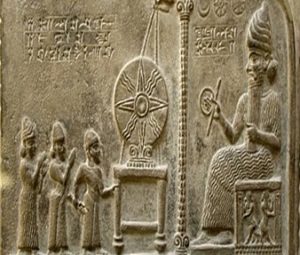
Sanskrit Language and Literature -(2+2 hrs)
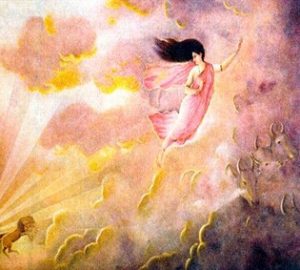
Indian Knowledge Approaches-I (2+2 Hrs)

Indian Knowledge Approaches-II (2+2 Hrs)
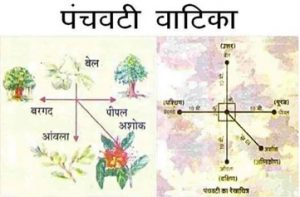
Sciences of Life and Mind (2+2 Hrs)
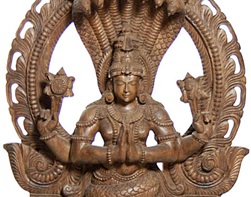
Self Exploration and Self Knowledge – I (2+2 Hrs)
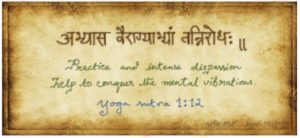
Self Exploration and Self Knowledge – II (2+2 Hrs)
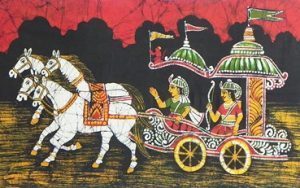
IKS Torchbearers (2 Hrs)

Ancient – Sankara, Nanak, Tulsi, Caitanya
Modern – Dayananda, Ramakrishna, Sri Aurobindo, Ananda Coomaraswamy
Total : 20 hrs of interaction (Spread over 10 weekend classes on Saturday)
IMPORTANT INFORMATION ABOUT THE COURSE
- Eligibility: Anyone interested in the contents of the course.
- The minimum contribution for the course is Rs. 501/- for students and 2301/-. For others.
- Fees is to be paid to: Account name: Narmada College of Management, Account No. 13140200000037, Bank of Baroda, IFSC Code : BARB0GNFCOM
- The duration of this course is 10 weeks of teaching-learning with 20 contact hours, spread over a period of 2 months, from 6th January 2024 to 16th Marchl, 2024
- Classes will be held on every Saturday, from 14:00 to 16:00 hrs at Narmada College Campus, @ 2 hrs per week. The last 30 minutes of the session will be for live interaction and question answers. Detailed session wise plan will be shared with the registered participants.
- Classes will be conducted at Narmada College Campus. Details will be shared with registered participants.
- Reading material in E-book format, power point presentations, developed for this course will be shared with the participants.
- The Evaluation will be based on attendance in the sessions, completion of a course project, group discussion and a final online examination at the end of the course.
- Digital Certificate from CHITI and Narmada College of Management will be provided to the students who have 80 % attendance and a qualifying score of 60% in projects and the final examination.
Link for Registration of the course : https://forms.gle/mnFexcBvCy9ATz2P7
Faculty:
Dr. Subhash Yadav, Associate Professor, Narmada College of Management, will be the faculty for this course. Additional guest sessions by experts may be arranged for the students. For any clarifications/details please feel free to contact: subhashyadav@ncmbharuch.ac.in
This certificate course is being offered from the Centre for Heritage of Intelligence Traditions of India (CHITI) an Indic study and research centre of Narmada College Campus. The centre is located on the banks of Maa Narmada, with a more than 300 year old banyan tree as its inspiration, in the building of Narmada College of Management, a constituent College of Narmada College Campus. The centre has a small library related to various aspects of Indian Knowledge Systems and Indian Civilization. Work on a Digital Library of articles, books and a monograph on Indian Intelligence Traditions is in progress. A discussion cum counseling room is available for visitors and guests to get more information about Intelligence and Knowledge traditions of India.
We invite you to join us in this journey of self exploration and self discovery of our culture. We will keep you informed of the latest happenings and events conducted under this centre. Join us by filling this registration form.
Link: https://forms.gle/qGEdFP7z57KGs4ZLA

Indian civilization is like an eternally old banyan tree, spreading its branches deep, far and wide all around the world. It is the oldest surviving tree in the garden of humanity, overlooking the millenniums and being a silent witness of all the seasons of world life. By being near it, knowing and understanding it, we also can experience a glimpse of the eternal within us, know and understand that part of us which is in time but also beyond time, which is in space but transcends space. Once known and understood, we become one with the eternal or sanatana within us.


